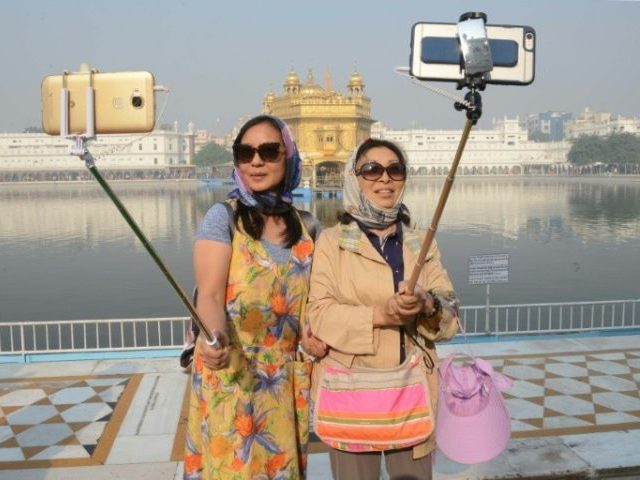In an article for Business Insider, Shona Ghosh criticized phone camera filters that whiten the faces of those in pictures.
“Popular smartphones like the Samsung Galaxy S8, the Galaxy S7, the Huawei P9, and many others often feature something called ‘Beauty’ or ‘Beauty mode’ when you turn on the front camera to take a selfie,” explained Ghosh. “Theoretically, it does what it says on the tin: airbrushing magic to make you look prettier in photos. Usually, it makes your skin look smoother and your eyes brighter. When I played around with Beauty mode on my Huawei P9, I found it also whitened my skin. It’s especially noticeable on anyone who’s dark-skinned, like I am.”
In the article, Ghosh then provided the results of similar filters from different mobile phones, including the Huawei P9, Huawei P10, Moto G5, Sony Xperia X, and Samsung S7 Edge.
Using various filters, Ghosh provided the original and the edited photos of her face side-by-side, and demonstrated that many of the “beauty” or “soft skin” filters lightened her skin.
“The most dramatic I found were the filters you apply after you’ve taken a selfie. You can turn up how soft your skin appears or … how white you are,” Ghosh proclaimed. “All of this is particularly difficult for dark-skinned women who have to contend with the fact that some Asian, South Asian and African cultures already view their complexion negatively. We don’t need our phones to do it too.”
What Ghosh failed to mention in her article, however, was that every phone had been made by an Asian company.
Sony is Japanese, Huawei is Chinese, Motorola is owned by Lenovo, a Chinese company, and Samsung is South Korean.
This is important to note, considering that, as explained in a 2016 Inquirer article, “Asia is obsessed with white skin.”
“Preference for lighter skin remains prevalent in Asia, according to many articles written on the subject. A most recent survey conducted by an independent research group, noted that 4 out of 10 women surveyed in Hong kong, Malaysia, Philippines and South Korea used a skin whitening cream,” reported Inquirer last year. “A report made in Malaysia concluded that three-quarters of Malaysian men thought their partners would be more attractive if they had lighter skin complexion, a beauty standard they call the ‘Eurasian’ or the ‘Pan-Asian look.’ History of skin whitening in Asia dates back to ancient China, India, and Japan.”
Perhaps Ghosh shouldn’t be surprised when electronics from Asia include features that will be popular with asian people. If she doesn’t like the results of photo filters and “beauty modes,” she can make the easiest choice of all… not using them.
Charlie Nash is a reporter for Breitbart Tech. You can follow him on Twitter @MrNashington or like his page at Facebook.

COMMENTS
Please let us know if you're having issues with commenting.